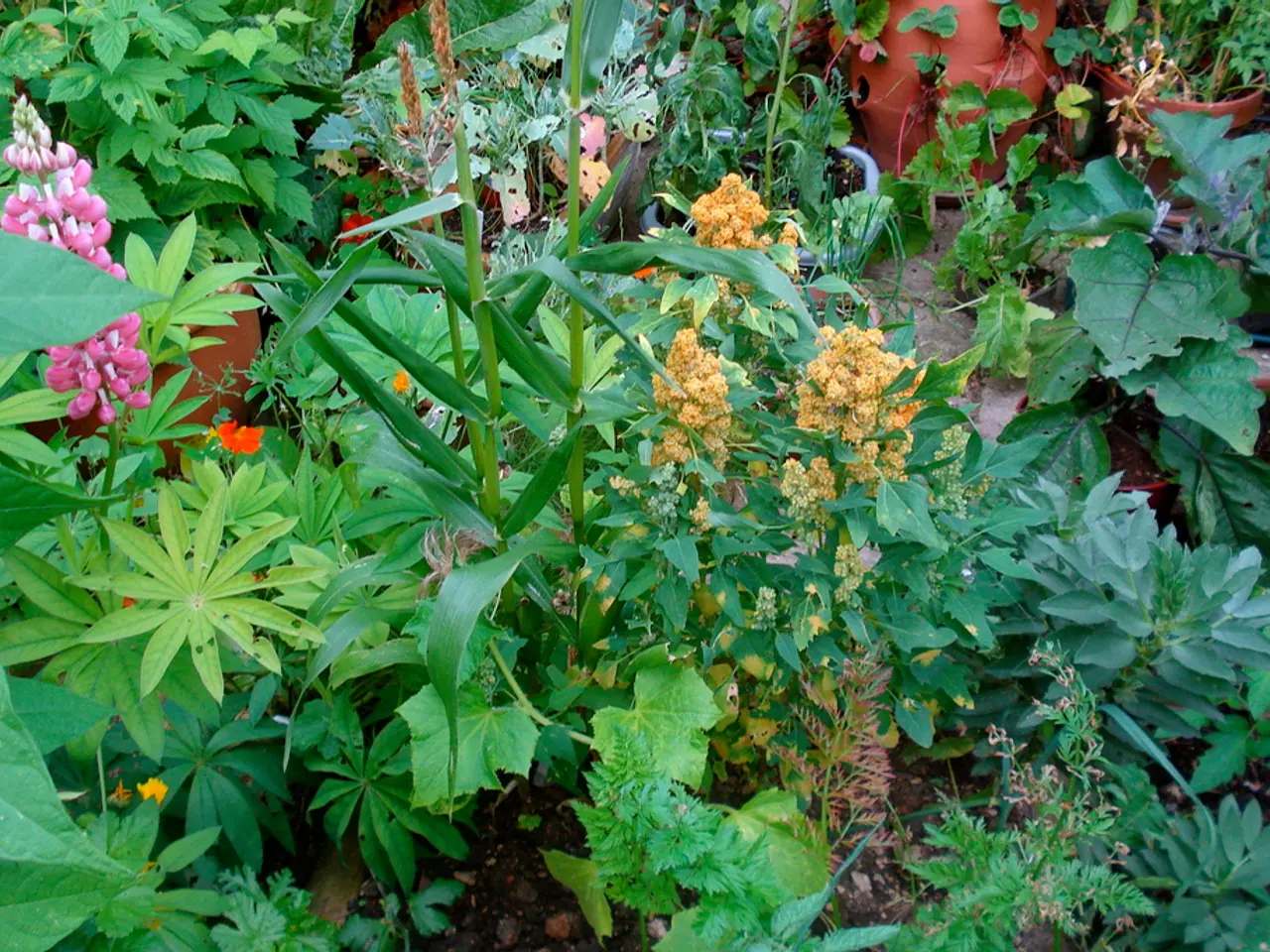15 Common Household Products That Your Garden Secretly Adores
In a bid to promote a greener and more sustainable approach to gardening, here are 15 common household items that can be ingeniously repurposed to promote healthier plants, improve soil quality, and control pests naturally. From powerful antifungals to natural pest deterrents, these items often outperform chemical alternatives in both effectiveness and environmental friendliness.
1. **Cinnamon**: Sprinkle cinnamon on seed trays or dust plant cuttings before planting. Its antifungal properties help prevent damping-off disease and encourage rooting, while repelling ants and some pests.
2. **Coffee Grounds**: Rich in nitrogen, coffee grounds nourish soil microbes, improve soil texture, and act as a mild pest deterrent against slugs and snails. They also acidify soil, benefiting acid-loving plants such as hydrangeas and blueberries.
3. **Baking Soda**: Use baking soda in homemade sprays for fungus control. Its alkaline property helps control fungal diseases like powdery mildew.
4. **Newspaper**: Use newspaper as a biodegradable mulch around plants. It suppresses weeds, retains soil moisture, regulates soil temperature, and breaks down into organic matter.
5. **Epsom Salt**: Dissolve Epsom salt in water and apply as a foliar spray. It provides magnesium and sulfur, essential for plant growth and chlorophyll production.
6. **Hydrogen Peroxide**: Diluted hydrogen peroxide can be used for a soil drench or foliar spray. It oxygenates soil, controls root rot fungi, and can disinfect seeds.
7. **Banana Peels**: Chop and bury banana peels in soil or add them to compost. They add potassium and phosphorus, essential nutrients for flowering and fruiting plants.
8. **Milk Spray**: Dilute milk and spray leaves. It fights fungal diseases such as powdery mildew thanks to its natural antifungal properties.
9. **Tea Bags**: Compost tea bags or steep them to make a mild fertilizer/soil conditioner. They add organic matter and nutrients to the soil, and their mild acidity may benefit some plants.
10. **Aspirin**: Dissolve aspirin in water as a foliar spray. It stimulates a plant's immune response, helping it resist diseases.
11. **Charcoal**: Crush charcoal and mix it into soil or compost. It improves soil aeration and drainage, and absorbs toxins.
12. **Vinegar**: Diluted vinegar can be used for weed control. It acts as a natural herbicide on unwanted plants (used carefully to avoid damage to desirable plants).
13. **Homemade Insecticidal Soap**: Mix mild soap and water to create a natural pesticide that disrupts pest cell membranes without harsh chemicals.
14. **Eggshells**: Crush eggshells and mix them into soil or around plants. They provide calcium and deter slugs and snails.
15. **Beer**: Set out shallow containers for slugs and snails. They are attracted to the beer and trapped, reducing their population. Beer also contains trace nutrients that can benefit compost piles.
These items work by either supplying essential nutrients, improving soil structure and fertility, suppressing diseases and weed growth, or acting as natural pest deterrents or controls. When using these household products, proper application is key to ensure their effectiveness and to avoid any potential harm to plants.
Embracing these eco-friendly gardening tips not only supports a more sustainable, natural gardening approach but also offers healthier plants, richer soil, and effective pest control without harsh chemicals. [1][4]
[1] Ferrero, B. (2021). Transforming Household Items into Eco-Friendly Garden Essentials. [Online]. Available: https://www.gardeningknowhow.com/organic/compost/homemade-compost/15-household-items-for-composting.htm
[4] Ferrero, B. (2022). The Holistic Gardener: A Guide to Sustainable and Natural Gardening. [Online]. Available: https://www.amazon.com/Holistic-Gardener-Sustainable-Natural-Gardening/dp/1492680154
- Adopting organic practices in gardening can enhance the health of plants and sustain the environment.
- The antifungal properties of cinnamon can be utilized in organic gardening by sprinkling it on seed trays or plant cuttings before planting.
- Coffee grounds, rich in nitrogen, serve as a natural soil amendment and mild pest deterrent against slugs and snails in organic gardening.
- Newspaper can be repurposed as a biodegradable mulch in organic gardening, helping regulate soil temperature, retain moisture, and suppress weeds.
- Epsom salt, when used as a foliar spray, provides magnesium and sulfur, essential for plant growth in an organic garden.
- Hydrogen peroxide, diluted and used for a soil drench or foliar spray, oxygenates soil, controls root rot fungi, and can disinfect seeds in organic gardening.
- Banana peels, chopped and added to soil or compost, offer potassium and phosphorus, essential nutrients for flowering and fruiting plants in an organic garden.
- Diluted milk can be used as a natural fungicide in organic gardening, fighting fungal diseases such as powdery mildew.
- Tea bags can be composted or steeped to make a mild fertilizer or soil conditioner in organic gardening, adding organic matter and nutrients to the soil.
- Aspirin, dissolved in water and used as a foliar spray, can stimulate a plant's immune response in an organic garden, helping it resist diseases.
- Crushed charcoal, mixed into soil or compost, improves soil aeration, drainage, and absorbs toxins, enhancing the condition of the organic garden.
- Diluted vinegar can be used for organic weed control, acting as a natural herbicide on unwanted plants without causing harm to desirable plants.
- Homemade insecticidal soap, a mixture of mild soap and water, creates a natural pesticide that disrupts pest cell membranes without harsh chemicals in organic gardening.
- Eggshells, crushed and mixed into soil or around plants, provide calcium and deter slugs and snails in an organic garden.
- Beer can be used to control slugs and snails in an organic garden by setting out shallow containers for them, attracting them, and trapping them. The beer also contains trace nutrients that can benefit compost piles.





